These are the best popular history books that we have read and reviewed on this site, since we started in mid 2021. Each book has received a coveted 5x⭐ rating.
Bear in mind we probably review about 5% of all popular history books published in the UK, so there are others... (and you can find them here, on the all history books page). But the ones below won't let you down.
So here they are, listed in order of date reviewed with most recently reviewed first! The links take you to more details on each book below.
- Scandal in Konigsberg:
- Captives and Companions: A History of Slavery and the Slave Trade in the Islamic World
- Republic: Britain's Revolutionary Decade, 1649-1660
- Cuba: An American History
- Pax: War and Peace in Rome's Golden Age
- Courting India: England, Mughal India and the Origins of Empire
- Brotherhood of Kings: How International Relations Shaped the Ancient Near East
- Weavers, Scribes, and Kings: A New History of the Ancient Near East
- River Kings: A New History of Vikings from Scandinavia to the Silk Roads by Cat Jarman
- Crusaders: An Epic History of the Wars for the Holy Lands
- Heretics and Believers: A History of the English Reformation
- Fifth Sun: A New History of the Aztecs
- Ravenna: Capital of Empire, Crucible of Europe
- The Enlightenment: The Pursuit of Happiness, 1680-1790
- The Fall of Robespierre: 24 Hours in Revolutionary Paris
- What Is History?:
- Checkmate in Berlin: the first battle of the cold war
- Norse America: The Story of a Founding Myth
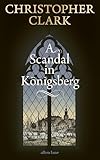
Scandal in Konigsberg:
A micro history focusing on the scandal of a priest - Johann Ebel - who is unjustly accused of outrageous sexual misdemeanours in mid 19th Century Konigsberg.
Like all great micro histories it is a little window that opens up a broader view on a particular time and place.
★★★★★ (2025)
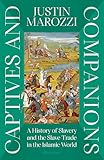
Captives and Companions: A History of Slavery and the Slave Trade in the Islamic World
A history of slavery is a history of the world: Captives and Companions paints a vivid picture of Arab and Islamic societies over the last one thousand years through the lens of enslaved people, and the perspectives of their enslavers.
Because this story is not often told - and even more rarely told with such balance and a broad empathy - I found it a valuable, important and fascinating book. Read it!
★★★★★ (2025)
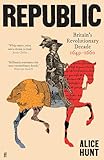
Republic: Britain's Revolutionary Decade, 1649-1660
I thought this was an excellent book, vividly reliving the British Isles in the 1650s: a time of fallen kings, divisive and divided parliaments, and a ‘striving self scrutiny‘ - people both ordinary and great trying to make sense of their time on earth in unheralded, overturning days.
★★★★★ (2024)
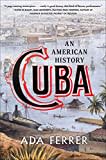
Cuba: An American History
Taking us from the arrival of Columbus at the end of the 15th Century to the departure of Castro at the beginning of the 20th, Ferrer‘s history of Cuba is a perfect mix of big events and the ordinary people that lived and made them.
★★★★★ (2021)
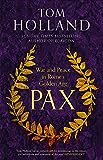
Pax: War and Peace in Rome's Golden Age
A grand tour of the Roman world from the death of Nero in 68 CE to the death of Hadrian 70 years later, Holland wants us to appreciate not only what the Romans did but also how they thought.
With a triumphant procession of defeated enemies, stormed cities, castrated boys and exploded volcanoes, I found it an entertaining, engrossing and thought-provoking read.
★★★★★ (2023)
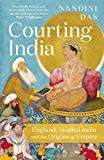
Courting India: England, Mughal India and the Origins of Empire
The story of a prickly ambassador from a small island of piratical traders visiting one of the great imperial land powers of the 17th century - the first time the English crown had sent a representative to Mughal India.
I found it a slow starting but ultimately brilliant book, deftly leading us through both the English and Indian sides of the encounter.
★★★★★ (2023)

Brotherhood of Kings: How International Relations Shaped the Ancient Near East
Podany describes the remarkable system of international peace and diplomacy in the Ancient Near East, already going strong in 2300 BCE and lasting until the late bronze age collapse in 1150 BCE - with a cast of colourful kings to convey the character of the time.
Brilliantly entertaining, if you have even a passing interest in ancient history or international diplomacy this book will be a treat.
★★★★★ (2012)
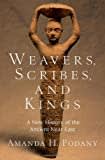
Weavers, Scribes, and Kings: A New History of the Ancient Near East
Weavers, Scribes, and Kings: A New History of the Ancient Near East introduces us to a broad cast of ancient Mesopotamians - from regal families to regular folk. Podany tells their story starting in 3500 BCE and the invention of writing, and going up until 350 BCE and the arrival of Alexander the Great.
This is a brilliant “micro-macro” history book that almost magically conjures the ancient Near Eastern world back to life. I loved reading it and would make it compulsory reading for everyone else if I could!
★★★★★ (2022)
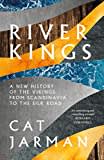
River Kings: A New History of Vikings from Scandinavia to the Silk Roads by Cat Jarman
Cat Jarman shows us the Viking world from England in the West to India in the East, following the trail of a small carnelian bead found in a Viking grave in Repton.
This is an excellent history book - describing the evidence that we have for what the Vikings were up to as they roamed the river systems of Eastern Europe, and stringing this together in a compelling and very readable story.
★★★★★ (2021)
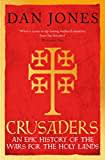
Crusaders: An Epic History of the Wars for the Holy Lands
Crusaders will take you on a journey around Europe to the Holy Land, plundering the historical record for great anecdotes as you go - giving us a glimpse of what it was like to live, fight, kill and die in the medieval world.
If you want to find out what the Crusades were all about - and are looking for a balanced view - this is a great place to start.
★★★★★ (2019)
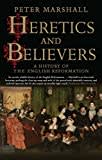
Heretics and Believers: A History of the English Reformation
Heretics and Believers helps us understand a crucial turning point in English history and how it impacted England‘s (and Britain‘s) subsequent history and culture.
It is thought-provoking and a compelling, providing a fascinating description of this critical 16th century period.
★★★★★ (2018)
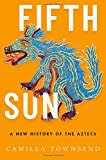
Fifth Sun: A New History of the Aztecs
Fifth Sun does a great job of getting us 21st century readers as close as we can currently get to the lost world of the Mexica, and certainly closer than any other account I have read.
It also brings some daylight to a time that has often been shrouded in darkness: of the Spanish conquest or the brutal sacrificial politics of the Aztecs. It reminds us that life goes on, and you may even find one or two happy endings.
★★★★★ (2020)
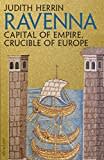
Ravenna: Capital of Empire, Crucible of Europe
Ravenna is an absorbing and compelling read. Celebrating the achievements of a town that was building a new Christian world, it is also about the entire Mediterranean area and beyond.
It deftly slots together the political, religious, social, and artistic spheres: constructing a beautiful mosaic of post Roman, pre European life.
★★★★★ (2020)

The Enlightenment: The Pursuit of Happiness, 1680-1790
One of the most absorbing history books I have read for some time. At 780 pages long, excluding notes and bibliography, it is long and packed full of information. I’m not sure how much of that information I retained, but I enjoyed reading it.
The range of topics covered is enormous, and you’re bound to find something in it that will interest you and make you think about seemingly familiar ideas in a new way.
★★★★★ (2020)
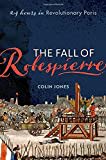
The Fall of Robespierre: 24 Hours in Revolutionary Paris
Colin Jones tells the story of Robespierre’s vertiginous fall over the course of a single day: from the voice of the Revolution to its victim. It is fascinating to trace what happens when those in power give orders, people decide whether or not to go along with them, and then… everything goes crazy.
If you have any interest in the French Revolution, or politics in general, or the “processes of history” you will find The Fall of Robespierre a riveting, rigorous and thought-provoking read.
★★★★★ (2021)
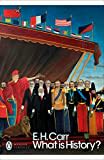
What Is History?:
Everyone should read this book.
A classic of historiography that has yet to be equalled. Written in a light and enjoyable prose, it helps us to consciously think about what “doing history” really means – and why this is relevant not just for the past but also our future.
★★★★★ (1961)
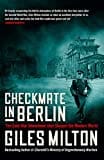
Checkmate in Berlin: the first battle of the cold war
A thrilling read, Giles Milton combines a strong narrative of four tense years in Berlin in the aftermath of the Second World War with personal stories at turns harrowing and uplifting.
Checkmate in Berlin describes the opening gambit in a conflict which would continue for the next 40 years.
★★★★★ (2021)
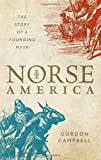
Norse America: The Story of a Founding Myth
Norse America gives us an authoritative and very readable account of Viking settlement in North America. But it is also the fascinating and sometimes troubling story of the “Vikings first” advocates: a mix of dreamers, pranksters, fraudsters – and those trying to drum up the tourist trade.
A gripping read, it makes us question the “truth” of history that we sometimes take for granted, and how we choose our stories is as important as their accuracy.
★★★★★ (2021)


